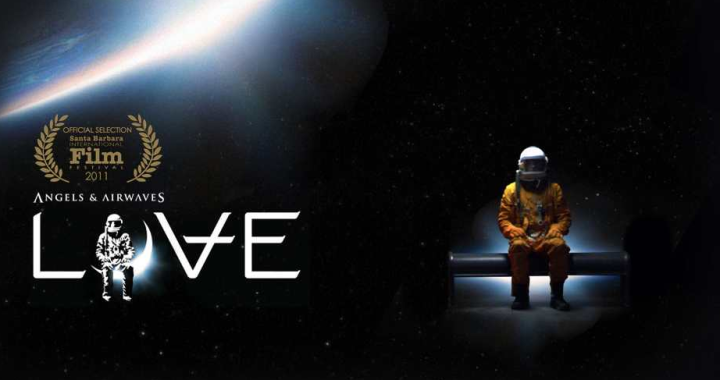What matters most in life? What can we truly not live without? These are the questions Love, made in 2011 by director, cinematographer, and production designer William Eubank and produced by music supergroup Angels & Airwaves, attempts to answer. The movie follows both a civil war soldier searching for an unidentified object found in the west and Lee Miller (Gunner Wright), an astronaut in the International Space Station. How they connect is revealed much later. Miller is by himself in the ISS with the intent to return to Earth soon until his mission control informs him that they do not have the resources needed to bring him back. He later sees explosions on the surface of Earth as all communication ceases. Alone with no idea what happened or why, Miller spends the next years coping with his solitude. Intercut between these storylines are what appear as interviews with regular people sharing their perspectives on life. These short interludes offer simple, but insightful comments on the human condition from varying perspectives.
Shockingly, the movie was made for only $500,000 with most of the sets built in the backyard of Eubank’s parent’s home. Despite what that would imply, the cinematography, particularly the lighting, is exceptional. Eubank uses the blinding light of the sun along with the colored switches of control panels to great effect, at times coating his lead in extreme shadow and contrast.

Love makes overt references to both Kubrick’s 2001: A Space Odyssey and Tarkovsky’s Solaris. The structure reflects parts of 2001, but the themes, thankfully, draw more from Solaris. Love can even be viewed as a spiritual successor to Solaris. I say thankfully because I am not a fan of 2001. While I can’t give it enough compliments for it’s visual design and special effects, like many of Kubrick’s films, it’s emotionally empty. Solaris and Love instead focus on longing for a human connection. As the isolation continues, Miller starts hallucinating and imagining others to reduce his solitude. Eubank uses this longing—the need to connect with another—and applies it to all of us. This is what makes Love resonate. It’s setting is extraterrestrial, but it’s interests, as evidenced by the ending, are human.
Even though it will leave many confused or unsatisfied, the ending is true to Eubank’s goal. He is not interested in the details of a single story, he’s interested in the feelings that drive every story. The emotions that make people continue in life. Viewers that can focus on his goal rather than their own plot resolution needs will leave the movie smiling. Combined with a pulsing electric score, also provided by Angels & Airwaves, the ending carries Love to an inspiring, thematically-appropriate conclusion and makes a firm statement on the value of human connection.

4/5 Stars.
